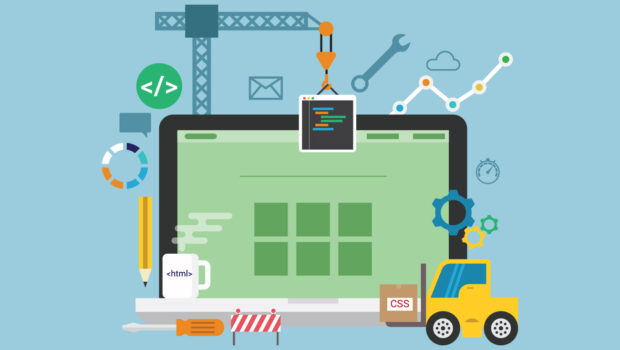Construction ERP Delivering Return on Investment: A Quick Guide
In the fast-paced world of construction, gaining a competitive edge can be challenging. Labor-intensive construction companies always struggle to streamline their processes, minimize costs, and boost efficiency. It’s when these companies should consider transforming to technologically advanced solution.
An ERP Software for Construction can prove to be an ideal solution for construction companies looking forward to streamline, manage, automate, and control their business processes. With these systems, you can access comprehensive solutions to meet unique needs of your business.
Going through this article, you will understand how a robust construction ERP system can deliver higher return on investment (ROI).
Enhanced Project Management
One of the major benefits of construction ERP application is its ability to manage project. Its advanced features allow managers to effectively plan and monitor company’s projects from start to their completion. From determining project milestones to managing budgets and resources and tracking progress, ERP system provides real-time visibility into every aspect of a construction project.
The advanced ERP technology streamlines project management processes, while ensuring efficient collaboration between all teams and stakeholders. Moreover, the software facilitates seamless communication and report generation, letting managers make informed decisions. Increased transparency and control will lead to positive project outcomes, reduced delays, improved customer satisfaction, and thus, increased ROI.
Efficient Resource Allocation
Construction projects requires effective resource allocation to manage labor, equipment, and materials. With construction ERP software, you can access comprehensive tools to allocate resource optimally and ensuring that the right resources are allocated for the right tasks and at the right time.
Efficient resource allocation and tracking will improve your business productivity, minimize downtime, and reduce cost related to idle or underutilized resources.
Streamlined Financial Management
Financial management is critical aspect of every business, and construction organizations are no exception. Construction industry specific ERP application offers robust financial modules tailored to the company’s unique needs. It allow managers to accurately estimate cost, prepare budgets, and forecast, ensuring that projects stay within budget.
In addition, you can automate your invoicing process to generate invoices accurately and timely. An efficient ERP system can also integrate with accounting systems to transfer data seamlessly and eliminate manual data entry system.
Integration Procurement
Procurement is a complex process in construction company that involves sourcing construction materials, negotiating with vendors, and managing inventory. You can simplify and streamline the procurement process by integrating it into a single ERP platform.
Moreover, ERP help companies maintain an accurate inventory of materials, automate reordering, and track inventory usage. Managers can also communicate seamlessly with suppliers, ensuring timely deliveries without delayed construction projects.
Real-Time Reporting and Analytics
Data-driven decision-making is key to generate higher ROI in the competitive construction industry. Construction ERP system can provide comprehensive reporting and analytics capabilities to equip companies with valuable insights into their operations.
ERP technology empowers construction companies to make quick, data-driven decisions by accessing real-time reports on project progress, resource utilization, financial performance, and other critical metrics. With this data-driven approach, you can identify the areas of improvement, optimize processes, and improve overall business performance.
Increased Productivity and Efficiency
Implementing the ERP system’s main perk is boosting productivity and efficiency. Construction companies can automate their repetitive tasks and eliminate manual data entry, allowing employees to focus on value-added activities crucial for project’s success.
Moreover, ERP technology facilitates collaboration among employees, subcontractors, managers, and other stakeholders for efficient decision-making, quick problem-solving, and streamlined workflows. It leads to increased productivity with shorter project timelines and higher revenue.
Cost Reduction and Financial Control
Controlling costs is another major challenge that every construction company encounter. ERP software with financial management capabilities can help firms stay on top of their finances. Accurate costs estimation, tracking expenses, and monitoring budget adherence are critical to identify potential cost saving areas and make informed decisions to mitigate risks.
In addition, you can manage subcontractor contracts and payments with ERP. The application ensures accurate billing and timely payments, minimize the risk cost overruns, and avoid financial complications.
Concluding Thoughts
Investing in the ERP for construction is the most appropriate decision your can make to generate higher return on investment (ROI). ERP technology streamline operations, minimize costs, and boost efficiency while allowing construction firms to complete projects effectively and generate higher profit margins. Furthermore, ERP facilitating improved project management, efficient resource allocation, real-time reporting, and streamlined financial processes, construction businesses can optimize their operations and achieve a higher ROI.
Cover Image by Freepik

















